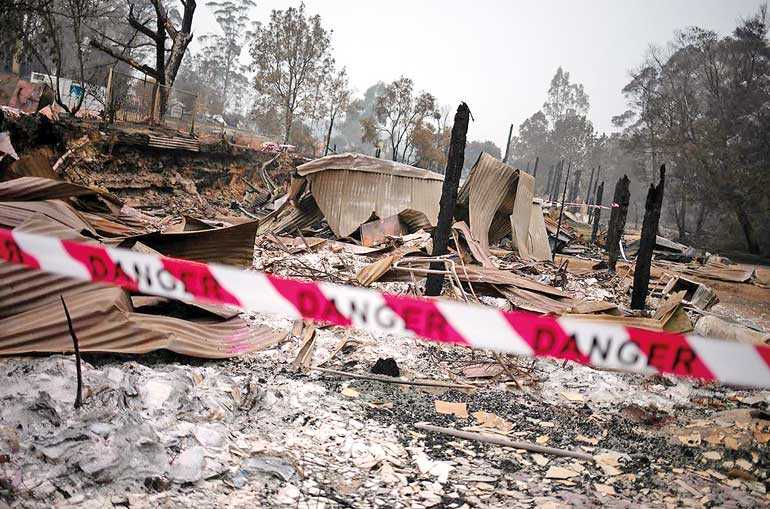Wednesday Feb 25, 2026
Wednesday Feb 25, 2026
Thursday, 9 January 2020 00:00 - - {{hitsCtrl.values.hits}}

A cordon tape with the word "Danger" is seen in front of a burnt down shop in the village of Mogo, Australia - REUTERS
SYDNEY (Reuters): Australian Prime Minister Scott Morrison urged foreign tourists not to be deterred by deadly wildfires that have razed large swathes of the country and sent smoke palls as far as South America, even as authorities warned of revitalised blazes.
Morrison made the plea for international visitor support yesterday as he visited Kangaroo Island, a usually wildlife-rich tourist draw card off Australia’s south coast that has been hit twice in recent weeks by fierce fires.
“Australia is open, Australia is still a wonderful place to come and bring your family and enjoy your holidays,” Morrison told reporters after meeting local tourism operators and farmers.
“Even here on Kangaroo Island, where a third of the island has obviously been decimated, two-thirds of it is open and ready for business,” he said. “It’s important to keep the local economies vibrant at these times.”
Australia-wide, the cost of the fires is mounting daily. Shortly after Morrison spoke, officials confirmed another fire-fighter had died in a vehicle crash last Friday while on duty, bringing the national death toll to 26.
In Victoria State, authorities urged people in fire-risk areas to consider evacuating today, ahead of a temperature spike on Friday that is expected to bring renewed danger.
“These fires remain dangerous, they remain dynamic, remain volatile, and the conditions we are going to see can give significant life to these fires,” Victoria Emergency Services Minister Lisa Neville said.
Thousands of people have already been left homeless by the fires that have scorched through more than 10.3 million hectares (25.5 million acres) of land – an area the size of South Korea. In rural areas, many towns were without power and telecommunications and some were running low on drinking water supplies, while smoke has blanketed cities including Sydney, Melbourne and Canberra.
The bushfires crisis follows a three-year drought that experts have linked to climate change and that has left much of the country’s bush land tinder-dry and vulnerable to fires.